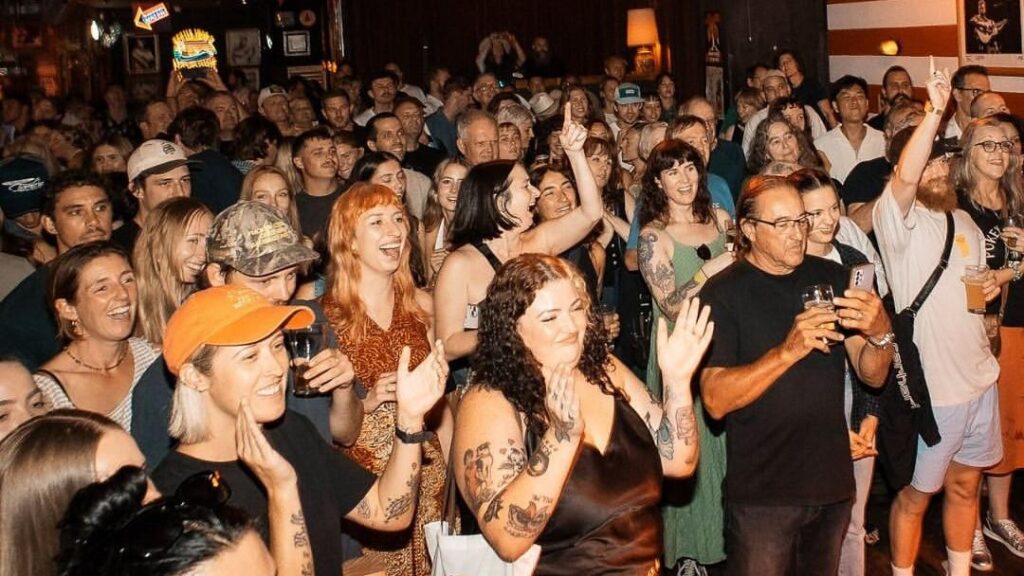
Honky Tonk owners rush to rectify DA “confusion” which says they agree to lower noise levels on ground floor
The City of Fremantle is taking decisive steps to support its live music venues, such as the popular Honky Tonk Blues, amidst growing noise complaints from nearby residents. The city aims to balance its increasing population with the preservation of its vibrant music scene, a key aspect of Fremantle’s cultural identity.
Honky Tonk Blues faced potential setbacks earlier this year when its expansion plans were threatened by complaints from a handful of neighbors. These residents urged the council to deny the venue’s application, with some even suggesting its closure. Although the plans were eventually approved, they came with strict conditions, including a sound limit of 85 decibels and other noise mitigation measures.
Balancing Growth and Cultural Heritage
This development follows similar challenges faced by another local venue, Freo Social, which was also targeted by developers of an adjacent block for excessive noise. In response, the Fremantle council initiated a working group in June to explore how new residential and accommodation projects can coexist with existing cultural activities.
The working group, which has met three times and conducted a workshop with local hospitality representatives, aims to ensure that new developments incorporate adequate noise-dampening measures. Fremantle councillor Andrew Sullivan emphasized that this initiative is only the beginning, stating,
“I want to assure people that it’s not the end of this process. There is a lot more work to be done.”
Preserving Fremantle’s Musical Identity
Mayor Hannah Fitzhardinge underscored the importance of preserving the live music industry, a sentiment echoed by Honky Tonk Blues proprietor Joshua Paparo. Paparo highlighted the challenges posed by new residential developments, noting that bedroom windows and walls are now appearing next to his venue.
“We’ve got two places where there’s physical connection and, obviously, that sound is just going to transmit straight through that,”
he explained.
Meanwhile, the threat to Freo Social has galvanized support from Perth’s music community, leading to a campaign to save the venue. In response, WA Labor pledged to exempt Freo Social from noise restrictions for four nights a week if re-elected.
Future Implications and Next Steps
The move represents a broader effort to create areas within Fremantle where elevated noise levels are accepted, allowing the city’s cultural venues to thrive. The council has committed to delivering a report within 12 months on establishing such zones and revising planning rules to ensure new developments address noise appropriately.
Anna Farrant, vice-convenor of the Buffalo Club, pointed out the disparity between existing live music venues and new development priorities.
“We’re not actively protected and, so often, we’re either small or not-for-profit venues that are battling against larger, better-resourced development companies,”
she said, emphasizing the need for more robust protections for cultural venues.
As Fremantle continues to navigate the challenges of urban growth, the city’s commitment to its live music scene signals a promising future for its cultural heritage. The outcomes of these initiatives could serve as a model for other cities facing similar challenges, balancing development with the preservation of vibrant cultural landscapes.






